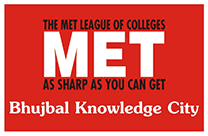The Master of Management Studies (MMS) in Marketing is a postgraduate program that focuses on developing skills and knowledge in the field of marketing management. The admission process can vary depending on the institution offering the program, but here's a general overview of what you might expect
Admission in MMS in Marketing
Embarking on a journey to pursue a Master of Management Studies (MMS) in Marketing is an exciting step towards a dynamic and rewarding career in the world of business and marketing. This comprehensive admission guide will provide you with valuable insights into the admission process, eligibility criteria, entrance examinations, and essential preparation strategies to succeed in your pursuit of an MMS in Marketing.
Admission Process for MMS in Marketing
The admission process for MMS in Marketing programs typically involves several key steps that aspiring students must navigate to secure their spot in esteemed colleges and universities. Here's a detailed breakdown of the admission process:
Step 1: Eligibility Check
Candidates must start by verifying whether they meet the eligibility criteria established by the college or university of their choice. The usual eligibility criteria include:
a. Possession of a Bachelor's degree in management or an equivalent qualification from a recognized institution.
b. A minimum percentage requirement is often set around 45% or higher, though this threshold may vary among institutions.
- c. Reserved categories may be granted a 5% relaxation in the minimum percentage requirement.
Step 2: Application Submission
Candidates must complete the application process, which usually involves the following steps:
- Some colleges may also offer admission based on the candidate's merit in the qualifying examination, making it essential to understand the specific requirements of your chosen institution.
Step 3: Merit-Based Admission
- In the case of merit-based admission, candidates must submit their application forms to the respective colleges or universities.
- It is crucial for candidates to perform exceptionally well in their undergraduate examinations, as these scores play a pivotal role in the entire admission process.
- Colleges analyze the submitted documents and release cutoff lists, indicating whether candidates are eligible for admission to their desired courses.
Step 4: Entrance-Based Admission
- For entrance-based admission, candidates must register for the designated entrance exams.
- Success in entrance exams hinges on achieving the cutoff marks set by the college or university of interest.
- Following the written test, colleges often conduct Group Discussions (GD) and Personal Interviews (PI) as subsequent rounds to assess and shortlist candidates.
- The final merit list of shortlisted candidates is determined based on a combination of factors, including written test performance, GD, and PI outcomes.
Step 5: Seat Allocation and Enrollment
- Successful candidates receive admission offers from their chosen colleges or universities.
- Candidates must complete the enrollment process by submitting the required documentation (such as academic transcripts and certificates) and paying the specified admission fees.
MMS in Marketing Eligibility Criteria
The eligibility criteria for MMS in Marketing programs typically encompass the following aspects:
1. Academic Qualifications:
- Candidates should possess a Bachelor's degree in management or an equivalent qualification from a recognized institution.
- A minimum academic percentage requirement is often stipulated, which is typically around 45% or higher.
2. Entrance Exam Scores:
- For institutions conducting entrance-based admissions, candidates must achieve the minimum cutoff score specified by the respective college or university.
It is essential to review the specific eligibility criteria of your intended institution, as variations may exist.
MMS in Marketing Entrance Examinations
Several national and state-level entrance exams serve as gateways for admission into MMS in Marketing programs. Here are some of the prominent entrance exams widely recognized by MMS Marketing programs:
1. CAT (Common Admission Test):
- CAT is an annual online entrance exam conducted by the Indian Institutes of Management (IIMs). It assesses candidates' quantitative, verbal, and logical reasoning abilities.
2. MAT (Management Aptitude Test):
- MAT is a national-level entrance exam conducted four times a year by the All India Management Association (AIMA). It is accepted by various management institutions across India and assesses analytical and problem-solving skills.
3. XAT (Xavier Aptitude Test):
- XAT is a prestigious national-level entrance exam used for admission to various management programs. It evaluates candidates' decision-making skills, general knowledge, and language proficiency.
4. CMAT (Common Management Admission Test):
- CMAT is an online computer-based entrance exam conducted by the National Testing Agency (NTA). It evaluates candidates' proficiency in quantitative techniques, data interpretation, language comprehension, and general awareness.
Please note that the acceptance of specific entrance exam scores may vary by institution. Therefore, it is crucial for candidates to consult the admission guidelines of their chosen college or university.
How to Prepare for MMS Marketing Entrance Exams?
Effective preparation is key to performing well in MMS Marketing entrance exams like CAT, MAT, and CMAT. Here are some essential tips to help you prepare successfully:
1. Understand the Exam Pattern and Syllabus:
- Familiarize yourself with the exam pattern, including the number of sections, types of questions, and time limits. Additionally, know the syllabus thoroughly to focus your preparation effectively.
2. Enhance Reading and Comprehension Skills:
- Regularly read newspapers, magazines, and online articles to improve your reading and comprehension skills. Staying informed about current affairs, both nationally and internationally, is crucial.
3. Practice Past Year Papers and Sample Tests:
- Solve previous years' question papers, sample papers, and take mock tests regularly to improve your speed, accuracy, and familiarity with the exam format.
4. Maintain a Revision Schedule:
- Allocate dedicated time for revision, as this is a crucial aspect of your preparation. Regular revision helps consolidate your knowledge.
5. Time Management:
- Time management is essential during the exam. Practice time-bound tests to develop effective time-management strategies, enabling you to attempt the maximum number of questions within the allotted time.
6. Seek Guidance and Coaching:
- Consider enrolling in coaching programs or seeking guidance from experienced mentors to receive valuable insights and guidance for your exam preparation.
Why Pursue an MMS in Marketing?
Pursuing an MMS in Marketing offers numerous compelling reasons and advantages:
1. Versatile Career Opportunities: Graduates can explore diverse career paths, including brand management, market research, digital marketing, advertising, and sales, across various industries.
2. Business Strategy: Marketing professionals play a pivotal role in shaping a company's strategy, product development, and market positioning.
3. Creativity and Innovation: Marketing allows individuals to channel their creativity and innovation into developing effective marketing campaigns and strategies.
4. Global Outlook: Marketing professionals often engage with international markets, providing opportunities for global exposure and cross-cultural experiences.
5. Continuous Learning: The dynamic nature of marketing ensures that professionals are continually learning and adapting to evolving consumer behavior and technological advancements.
6. Impactful Roles: Marketing professionals contribute significantly to a company's success by driving revenue, brand recognition, and customer engagement.
 2 Years
2 Years
 Post Graduate
Post Graduate
 Management
Management
 Full Time
Full Time









 back
back